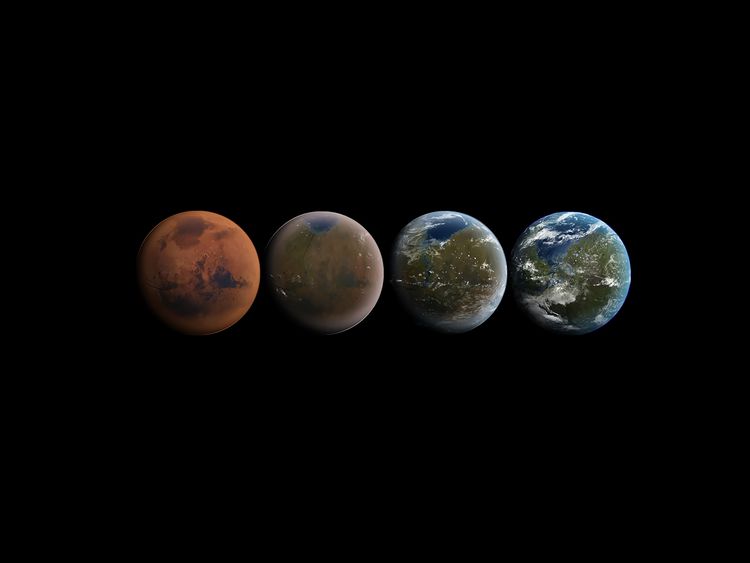A new video released by NASA has teased the space agency's return to the Moon and plans to fly beyond it with missions to Mars.
The project aims to answer the Space Policy Directive-1, signed by Donald Trump last year, which directed the agency to renew its physical space exploration efforts.
In a speech read by voiceover actor Mike Rowe during the new video, the agency added: "We've taken giant leaps and left our mark in the heavens.
"Now we're building the next chapter, returning to the Moon to stay, and preparing to go beyond. We are NASA – and after 60 years, we're just getting started."
In order to meet president Trump's call for a sustainable program of space exploration, NASA submitted a plan to US Congress a few weeks ago to set out its National Space Exploration Campaign.
The campaign "calls for human and robotic exploration missions to expand the frontiers of human experience and scientific discovery of the natural phenomena of Earth, other worlds and the cosmos".
It has five strategic goals. These include:
:: It will transition US human spaceflight activities in low-Earth orbit to commercial operations that support NASA and the needs of an emerging private sector market, rather than making the government bear the entire cost.
:: It will also lead the emplacement of capabilities that support lunar surface operations and facilitate missions beyond cislunar space – that is space between the Earth and the Moon.
:: The campaign will foster scientific discovery and characterisation of lunar resources through a series of robotic missions.
:: It will return US astronauts to the surface of the Moon for a sustained campaign of exploration and use.
:: The work will demonstrate the capabilities required for human missions to Mars and other destinations.

NASA has achieved six manned missions to the surface of the Moon, beginning with Neil Armstrong and Buzz Aldrin in July 1969 up to Gene Cernan and Jack Schmitt in December 1972.
More from NASA
An estimated 530 million people watched the live global broadcast of the Armstrong and Aldrin moon landing, which was not broadcast at all in the Eastern Bloc (with the exception of Romania) and went out at 1:56am in the UK.
The first landing of a man on Mars could well take place within our lifetimes.
[contf] [contfnew] 
Sky News
[contfnewc] [contfnewc]







